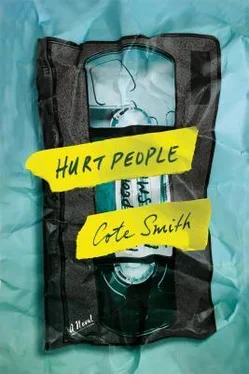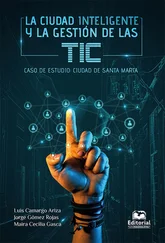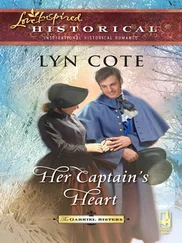* * *
On the way to the police station my mother would not say a word. I didn’t blame her. I couldn’t imagine myself ever wanting to talk again. Before we left I had thrown up, quickly, violently. Heaving all I had, and when all I had was gone, my body retched some more. Even though there was nothing left. No words. Only feeling terrible. Only the awful taste.
I sat in the back of the van. I would stay here. I would wait silently as my mother went into the station. Cars and clouds would roll by. A siren would shriek, and a minute later my mother would reappear, changed again.
* * *
My mother shook my knee to stir me from my daydream. We’re here, she said, and stepped out of the van. Where we were wasn’t the station. We were parked in an unfamiliar lot, behind a big brick building I’d never seen. Or I had seen it once, I was later told, but when my eyes were new and I entered our prison town for the first time, in the arms of my mother.
The hospital smelled like the school nurse’s office, chemical and clean. My mother held my hand. A nurse gave her a number and my mother pulled me through a maze of halls. I peeked in a few of the rooms, saw serious-looking people standing over still feet. In one room I caught a man, not much older than my dad, pushing a pole to the bathroom. In another, an old woman slept in a chair, flowers in her hand, saggy balloons dying just above her head. Eventually we came to the door with the number. It was closed, and when my mother gently knocked, I heard my dad’s voice call for us to come in.
The room was mostly dark. The lights were turned off, and only a few bars of daylight slipped through the blinds, striping the yellow walls white. My dad rose from the chair and greeted my mother with a hug, burying his puffy face in her neck, her yellow hair. He pulled away and whispered something that I couldn’t hear or see behind my mother’s head. But my mother nodded and the two turned to the opposite wall, to a bed I thought was empty until I stepped deeper into the room. In the bed I saw two feet and when I followed those feet I saw my brother.
It took a moment to recognize my brother in the body in the bed. I had to look past so much. His starved body, thin as me. The long hair that swept over his shut eyes. He had bruises up and down his arms, dark purples stained on his neck and wrists. A tube snaked up his arm and disappeared in the hospital gown. His face looked sucked in, his cheekbones stuck out, and he was as white as a ghost. I didn’t believe them when they said he wasn’t dead.
My mother fell to her knees, rose with the help of the bed rails and my dad. He put his arm around us both and we watched my brother’s chest rise and fall. We watched his mouth hang open, the drool that pooled off his lip. His face flinched as he slept. I wanted to put my finger in his mouth, to feel his breath. I wanted to dip my finger in the cave of his lips and watch him dream.
* * *
The next night we took him home. My mother’s insurance ran out. My dad offered money but my mother wanted him out of here, she said. She wanted this to be over. A stern doctor cleared my brother, prescribing a lot of rest, food, and water. He looked at us with pity and sent us on our way.
All of this after my dad filed the police report. After my brother woke and answered my dad’s questions. When he did wake, to me, he was a different person. Gone were the faces he made, the looks I recognized. He had no attitude or emotion and answered each question yes or no, or with the smallest of sentences.
Where were you kept? House.
Were you held against your will? Yes.
Where exactly? House.
Where in the house? Basement.
Did he hit you? Yes.
Where? My arms. Legs and face.
Were you tied up? Yes.
You could not move?
No.
For how long? All the time.
My mother held my brother’s hand the entire interview, but this didn’t seem to comfort him. He didn’t look at her, or me. He looked at the window, even though the curtains were closed, and even if they weren’t, the room’s view was just another brick wall.
My dad continued.
This will be difficult, he said.
Did the man touch you, in an inappropri—? Yes.
— ate way? He did? Yes.
My mother stifled a cry.
OK, it’s OK, son, my dad said. Can you tell me how many times? A few.
Can you show me where? My brother pointed. Down his front, between his legs. He rolled over and pointed down his back.
My dad let his head drop, but only for a second. “It’s OK,” he said again. “It’s OK. It’s over now.” He took my brother’s hand and rubbed his thumb over the bump where the IV entered his skin. “I just need you to do one last thing. When you’re ready, I need you to come with me and identify the man. His body.”
For the first time, my brother turned his gaze from the window.
“The Stranger’s dead?” I said.
My dad turned and gave me a stern look. “Be quiet,” he said. “No one’s talking about that.”
I looked at my brother, to see what this information did to his face, but he was through looking at any of us. Later, when I couldn’t sleep, I let my mind imagine Chris’s death. I put Chris in the woman’s chair, instead of behind the camera. I made Chris take her place and I let the Stranger, whoever he was, whisper how I felt. You need to tell them. They need to understand that you deserve this. I made the Stranger put the gun to Chris’s head. I made Chris beg and cry. You know me, he said. You know me. Do I look like a stranger?
I made the Stranger say shut up. I made him shoot and I watched Chris fall to the floor. Do you know me? the Stranger said. Do you know me?
After my dad put his notepad away, after my mother hugged my brother for hours and the doctor said we could go home, after my mother made my brother a bed on the couch and lay next to him, so he wouldn’t have to sleep in the basement, so she could watch him — after all this, when it was just me in the basement, me and the spiders, I let the Stranger loose. I brought Chris back to life and let the Stranger kill him over and over. In all the ways I could think of. In all the ways I’d seen villains die in movies.
Nobody knows anybody, and if you think you do, this is what you get .
In my mind I made Chris suffer the worst, and I tried to make myself believe that this made things better.
You deserve this. You deserve this.
THE STRANGER WAS FOUND weeks later, states away. My dad never mentioned the story, but it was all over the local news, the front page of the paper. He was caught hiding in an old barn on a random farm. The barn was rarely used, apparently, and had been all but abandoned. Boards were missing or cracked, the paint was worn off, and the roof had gaping holes and dents from suffering decades of storms. The land’s owners might never have known about the Stranger had their teenage son not snuck a girl and some wine to the barn. They discovered the Stranger sleeping behind an old bale of hay, wild cats circling his head, meowing for food and water. The son told his dad and the dad, too old to deal with squatters anymore, told the sheriff. An hour later the Stranger was on his way back to Kansas. Back to Leavenworth.
We stayed with my dad, and the city continued to heal. Every day the news ran a different heartwarming video telling the story of some small miracle related to the storm. A dog was picked up by the tornado and thrown two miles. Its owners gave up the dog for dead, until last week when they heard a whine at the door. The dog had crawled its way home, broken legs and all.
By September, when school was ready to start, there were few signs of the tornado’s damage. You had to know where to look.
Читать дальше












